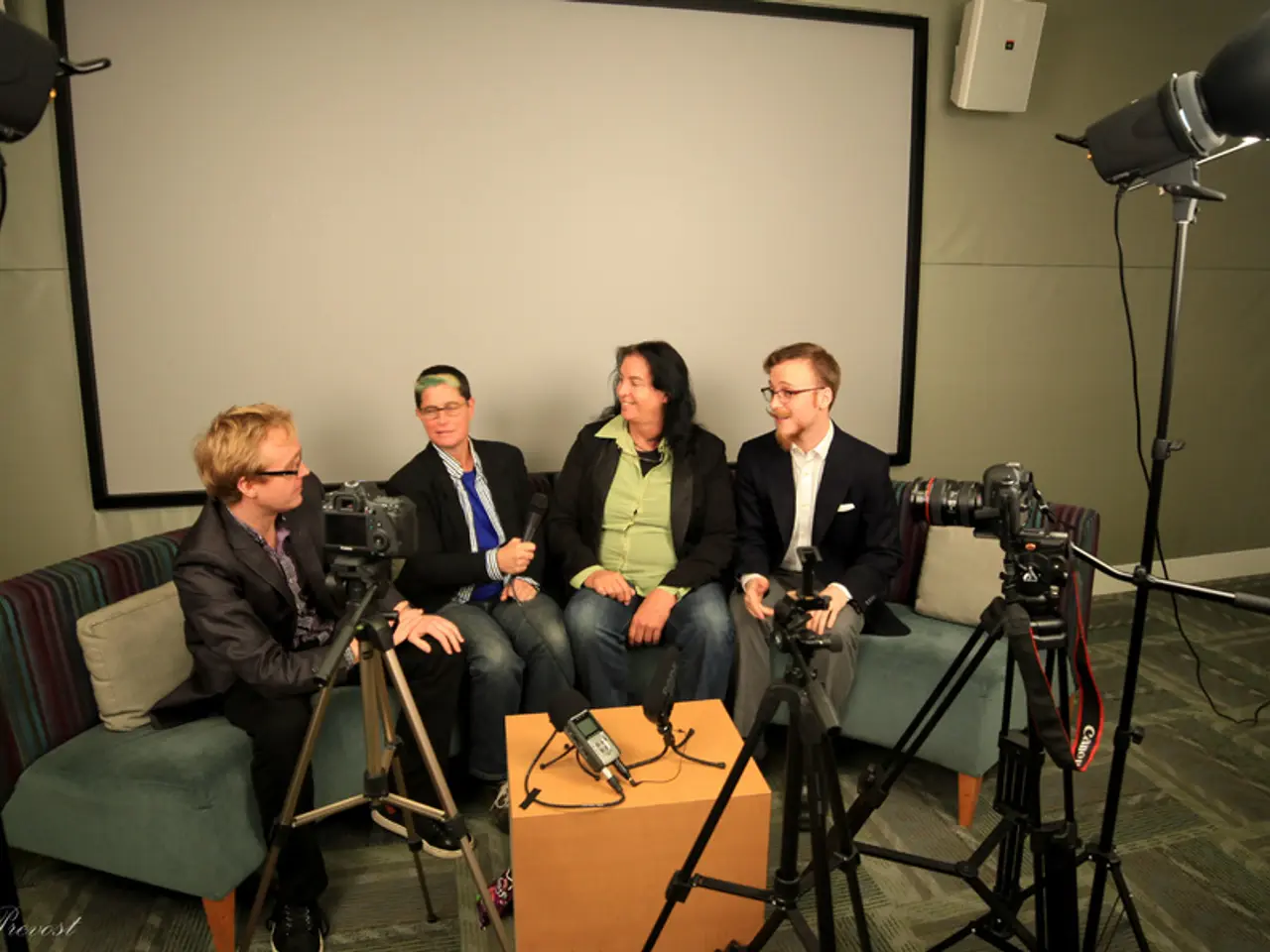Seven Techniques for Encouraging Positive Change in Professionals Through Motivational Coaching
Motivational interviewing (MI) is a scientifically validated method, primarily used in health-related fields, education, and workplace health behavior interventions. This empowering approach helps individuals improve their behavior without imposing solutions or opinions upon them.
Healthcare and Public Health
In healthcare and public health, MI is effectively used to enhance behavior change and improve treatment adherence. For instance, in industrial workplace settings, MI combined with educational sessions and peer support has been shown to create supportive environments that encourage healthier behaviors among workers, such as managing cardiovascular risks [1].
Mental Health and Education
In mental health and education sectors, MI techniques are applied within professional development and coaching models to improve self-efficacy and practice change. This could include enhancing teachers’ and school clinicians’ implementation of evidence-based practices (EBP) [3].
While MI is often linked to patient-centered communication, which has been demonstrated to improve therapeutic alliance, treatment engagement, and adherence across psychiatric and psychological care [2], its broader industrial or HR applications (like job candidate interviews) do not relate directly to MI but rather involve other communication formats [4].
Key Findings
Motivational interviewing is mainly scientifically validated for:
- Healthcare behavior change interventions, such as smoking cessation and cardiovascular risk mitigation in workplaces [1].
- Mental health treatment and psychiatric care to improve engagement and adherence [2].
- Educational and professional development coaching to foster self-efficacy and effective practice change in schools and similar settings [3].
There is no strong scientific evidence of MI’s direct application in commercial industries outside health, education, or mental health contexts as per the current literature.
The MI Approach
MI involves asking open-ended questions that encourage the other person to delve deeper into their personal strengths, values, and existing resources. Clinical psychologist Bill Matulich, Ph.D., describes four core skills used by MI practitioners: open questions, affirmations, reflections, and summaries.
MI emphasizes personalized plans rather than rigid or constrained protocols. The three core principles of MI are collaboration, empathy, and autonomy. Collaboration emphasizes a team effort to resolve an issue, empathy validates the interviewee's feelings and shows that you care, and autonomy empowers the interviewee to make their own choices.
These skills can be abbreviated by the acronym OARS. MI was originally developed to help people recover from addiction and alcoholism, but it is scientifically proven to help with various issues such as smoking cessation, boosting student engagement, reducing employee sickness absence, and more.
MI is used by therapists, social workers, teachers, managers, and parents. To be successful at MI, remember to ask open-ended questions, regularly affirm and celebrate a person's strengths, practice active, reflective listening, and summarize and mirror back what they say.
By focusing affirmations on positive statements related to the desired change, you are helping the individual feel excited and motivated to keep going. Providing summaries demonstrates your understanding of the interviewee's experience and makes them feel validated.
In essence, motivational interviewing is a collaborative communication method to help people change their behavior for the better, respecting a person's individual freedom of choice and self-efficacy.
Key findings in table form:
| Industry/Field | Application of Motivational Interviewing | Evidence / Impact | |----------------------|----------------------------------------------------------------------|------------------------------------------------------------| | Healthcare/Public Health | Behavior change, health risk reduction (e.g., cardiovascular) | Improved health behaviors and supportive workplace environments[1] | | Mental Health | Enhancing therapeutic alliance, engagement, treatment adherence | Proven benefits in psychiatric care and patient-centered communication[2] | | Education | Teacher and clinician coaching for evidence-based practice adoption | Increased self-efficacy and practice change in schools[3] | | Other Industries | No direct scientific evidence of MI applications (e.g., hiring interviews) | Interview format studies unrelated to MI per se[4] |
This shows MI’s versatility across health and education sectors but limited scientific proof of use outside these domains.







